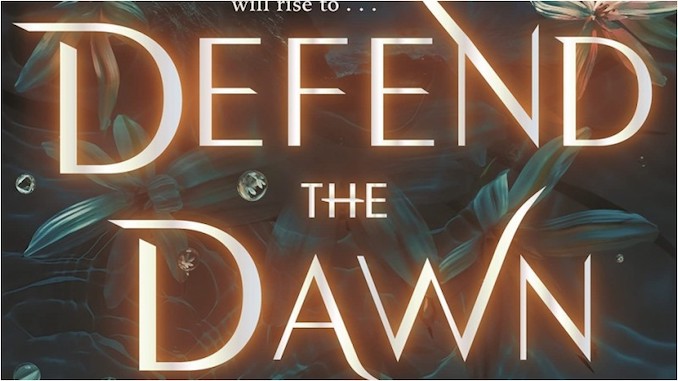Defend the Dawn Is a Slow, Introspective Sequel That Leaves Its Heroine Behind

Author Brigid Kemmerer is unstoppable this year. Fresh off the launch of Forging Silver Into Stars the first installment in a new spinoff series set in her megapopular Cursebreakers universe earlier this year, she’s also launching the second book in her Defy the Night trilogy, her other big sweeping high fantasy adventure saga this Fall. Just typing all that out makes me tired, so your guess is as good as mine about how she’s accomplishing churning out all these words.
Though the two series have many elements in common: A feisty, fish-out-of-water heroine forced to learn to survive in a world she’s not used to; a gruff, emotionally stoic prince who likes to get his own way; and a fast-paced narrative that deftly switches between perspectives in a way that actually adds something to the story, Defend the Dawn is perhaps Kemmerer’s most introspective book yet, allowing readers a chance to really get inside the heads of her characters and go deep into their often churning, conflicting viewpoints. The downside of this, of course, is that this is also one of her slowest books yet, and a story that generally privileges conversation over action. (Right up until the last few chapters anyway.)
Defend the Dawn picks up essentially where Defy the Night left off. Having thwarted a revolution, King Harristan of Kandala and the rest of his ruling council must negotiate with the rebels in an attempt to find a more equitable distribution strategy for the medicine that’s helping keep them all alive. But supplies of the Moonflower that are critical to making that lifesaving elixir remain dangerously low and plenty of nobles don’t much care for the idea of sacrificing any of their own supply to help the poor residents of the impoverished Wilds sector.
So when a handsome ship’s captain named Rian Blakemore shows up, claiming to be the son of a spy sent to the neighboring kingdom of Ostriary under the reign of Harristan’s father and offering a bounty of Moonflowers in exchange for steel and a new trade agreement between the two nations, everyone is eager to hear him out. A trade delegation, consisting of Harristan’s brother Prince Corrick, apothecary Tessa Cade, and rebel leader Lochlan Cresswell,l is tapped to journey to Ostriary with Captain Blakemore and hopefully hammer out a treaty that will increase Kandala’s access to Moonflower, allowing Harristan to keep his people alive while giving Tessa time to find an alternative treatment.
The bulk of the book is subsequently taken up by their slow sea journey toward Ostriary, as Kemmerer builds a backstory for this new kingdom, Captain Blakemore, and the various members of his crew. Tessa is immediately taken with the handsome captain and his aggressive idealism, while Corrick is mistrustful and on guard for a trick. The close quarters force the pair—who initially fell in love when the prince was masquerading as a Robin Hood type willing to steal medicine from the wealthy sectors to distribute amongst the poor—to take a new look at their relationship, and the thoughtful, even-handed way they Kemmerer handles the roots of their conflict is admirable.
-

-

-

-

-

-

-

-

-

-

-

-

-

-

-

-

-

-

-

-

-

-

-

-

-

-

-

-

-

-

-

-

-

-

-

-

-

-

-

-








































